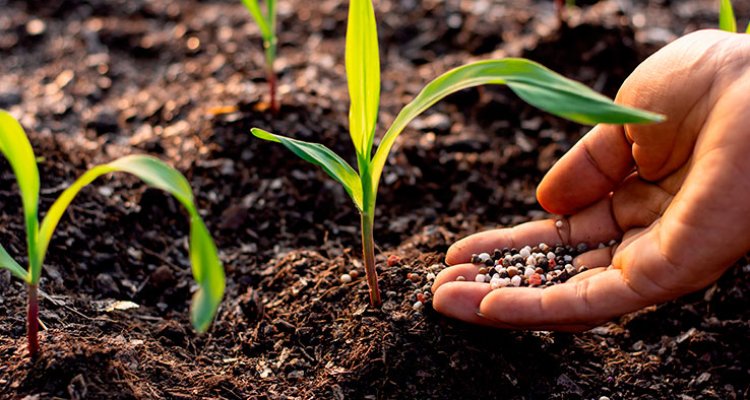
Thesis subject
Understanding and improving farm-based soil fertility management in Ghana; a social- agronomic approach
International Fertilizer Development Center (IFDC) is an independent non-profit organization that combines innovative research, market systems development, and strategic partnerships to spread sustainable agricultural solutions for improved soil health, food security, and livelihoods around the world. IFDC’s mission is to bring together innovative research, market expertise, and strategic public and private sector partners to identify and scale sustainable solutions for soil and plant nutrition that benefit farmers, entrepreneurs and the environment.
IFDC: 1) Develops, identifies and tests technologies and innovations to improve soil health and plant nutrition; 2) Increases farm productivity, profitability and sustainability of target smallholder agricultural systems; 3) Strengthens market systems to scale technologies and improve livelihoods, environmental outcomes and climate resilience; and 4) Enables impact at scale by improving policies and strengthening capacities.
About the Task
Sub-Saharan Africa experiences poor soil fertility that suppresses crop yields. The use of fertilizers has therefore been recommended as one of the ways to address this problem of low yield and poor agricultural productivity. Crop fertilizer uses in Ghana, for example, is low in general but highly variable with yield responses varying across agroecological zones. Soil fertility management is a process that depends on many variables, some of them generic within and acrosss regions, some farm specific. Moreover, many variables, for example rain fall, labour availability or fertilizer prices, fluctuate over time. Using a combination of social scine and agronomic methods, the IFDC program Fertilizer Research and Responsible Implementatiopn (FERARI) seeks to undertake an integrated mapping and analysis of soil fertility management within at farm-level across Ghana‘s agroecological zones. The objectives of the study are as follows:
- Conduct farm-level interviews and observations on soil fertily management in a selected region of Ghana.
- Retrieve and analyse existing farm-level data from previous studies of the selected region and regions with similar agro-ecological characteristics.
- Identify key dynamics between social-economic variables and agronomic variables
- Identify regional patterns of regularities, based on relatively stable variables, and irregularities, based on highly fluctuating variables.
Methodology
The study is based on combined qualitative methods and quantitative methods, depending on methodological skills of the student. The study area will be FERARI field locations and the student will receive assistance and supervision from the FERARI team.
Output
The student will write a thesis that will be made avaiailable to FERARI and extract the most important findings in a policy brief. The student would also be assisted to produce a research article that can be published in a scientific journal for our wider international audience.
Qualification
An MPhil/MSc student in International Development, Dvelopment & Rual Innovation, Agroecology, Plant Science, Organix agriculture or related programmes Applicant must have completed his/her course work and be ready to start a M thesis.
Duration
The duration of this assignment shall be four (4) months, but preferably up to seven (7) months. The student is expected to deliver specific activities within the following timeline (student can propose a revision to the timeline).
Activity Timeline
Proposal writing Weeks 1-4
Field work preparation (identifying study
area, respondents etc) Weeks 4-5
Data collection Weeks 5-12
Data analysis, writing of thesis and
policy brief Weeks 10-16
Benefit package
IFDC-FERARI could offer a student a stipend of 200US$ (twohundred dollars) (to support expenses for housing), and operational expenses in the country (transport, hotels when outside Accra, per-diem etc) for field operations. Other expenses, like own support and insurances should be born by the student. A contract will be agreed between IFDC and the student.